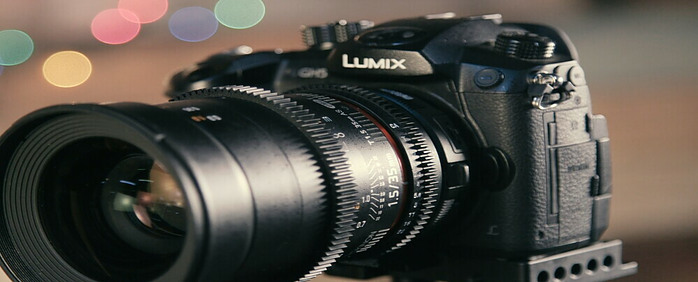DSLR vs. Mirrorless Cameras for Video: Making the Right Choice
 Introduction
Introduction
In the world of videography, choosing the right camera can be a pivotal decision that impacts the quality and style of your video projects. The debate between DSLR and Mirrorless cameras for video creation has been ongoing, with both offering unique advantages and considerations. In this blog post, we’ll clarify the differences between DSLR and Mirrorless cameras, explore their respective histories in video recording, and provide insights to help you make an informed choice for your video production needs.
Introduction to Video Camera Choices: DSLR versus Mirrorless
1. Clarifying the Distinction Between DSLR and Mirrorless Cameras
Begin by defining the fundamental differences between DSLR (Digital Single-Lens Reflex) and Mirrorless cameras. Explain how each camera type operates and the impact of these differences on video recording.
2. Brief History of Video Recording Capabilities in Both Camera Types
Offer a historical perspective on how DSLR and Mirrorless cameras have evolved as video recording tools. Highlight key milestones and developments that have shaped their capabilities.
3. Overview of the Debate on DSLR vs. Mirrorless for Video
Introduce the ongoing debate and the varying opinions within the videography community about the suitability of DSLR and Mirrorless cameras for video projects.
Understanding DSLR Cameras for Video Creation
4. Technical Specifications of DSLRs Relevant to Video
Explore the technical specifications of DSLR cameras that are crucial for video production, including sensor size, lens compatibility, and video recording formats.
5. Advantages of Using DSLR Cameras for Video Work
Highlight the strengths of DSLR cameras in video creation, such as their versatility, availability of a wide range of lenses, and established track record in the industry.
6. Limitations and Challenges with DSLR Video
Discuss the limitations and challenges that DSLR cameras pose for video production, including issues like autofocus speed and limitations in 4K video recording.
Embracing the Mirrorless Revolution in Videography
7. How Mirrorless Technology Works for Video
Explain the mirrorless technology and its advantages in video recording, focusing on features like electronic viewfinders, reduced size and weight, and silent shooting.
8. Benefits of Choosing Mirrorless Cameras for Video Projects
Detail the advantages of mirrorless cameras in videography, including fast and accurate autofocus, improved low-light performance, and the ability to adapt a wide range of lenses.
9. Potential Drawbacks to Consider with Mirrorless Video
Highlight potential drawbacks of mirrorless cameras for video, such as battery life and the learning curve associated with electronic viewfinders.
Making Your Choice: Considerations for Video Production
10. Evaluating Camera Features Based on Specific Video Needs
Discuss how to evaluate camera features based on the specific requirements of your video projects, such as resolution, frame rate, and video recording formats.
11. User Experience: Ergonomics and Handling in Filmmaking
Consider the user experience when choosing between DSLR and Mirrorless cameras, including factors like ergonomics, button layout, and ease of handling during video shoots.
12. Price-Performance Ratio in the Current Market
Analyze the price-performance ratio of DSLR and Mirrorless cameras in today’s market, taking into account factors like budget constraints and the value each camera type offers.
13. Future-Proofing Your Video Gear Investments
Offer advice on future-proofing your video gear investments by considering factors like firmware updates, lens compatibility, and long-term support from camera manufacturers.
Conclusion
In the DSLR vs. Mirrorless debate for video production, there is no one-size-fits-all answer. Both camera types offer unique advantages and considerations that can significantly impact the outcome of your video projects. By understanding the distinctions between DSLR and Mirrorless cameras, evaluating your specific video production needs, and considering factors such as user experience and budget, you can make an informed choice that aligns with your creative vision and filmmaking goals. Ultimately, the right camera is the one that empowers you to bring your video ideas to life with confidence and creativity.
If you would like to discuss any sort of video project then dont hesitate to Call Alan on 07539141257 or 03332241257, or +447539141257 or +443332241257, you can schedule a call with Alan on https://calendly .com/alanje or drop an email to alan@alpusgroup.com.
0 Comments